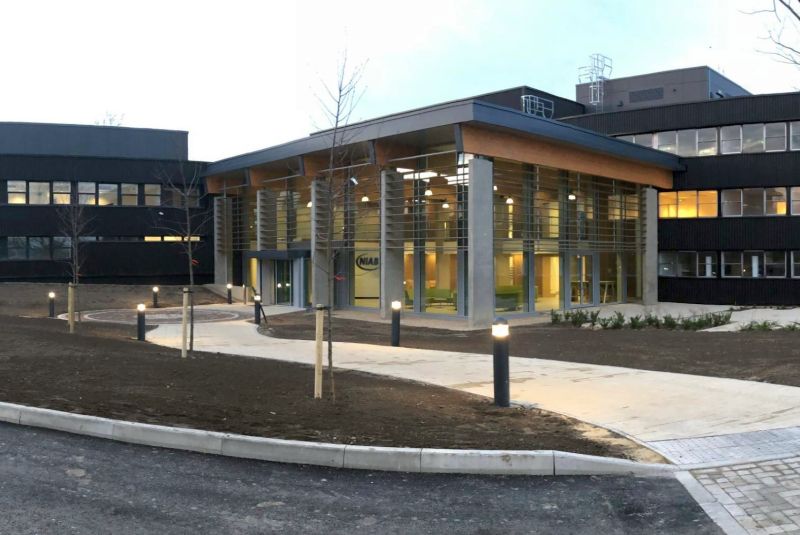
The National Institute of Agricultural Botany has opened its new Cambridge headquarters after a £25 million transformation.
The plant science research organisation has finished its two year redevelopment and construction project.
The new Lawrence Weaver Road headquarters includes new offices, laboratories, growth room facilities and meeting rooms.
Its campus is on NIAB's original Old Granary and John Bingham Laboratory site, opposite the firm's home for the past 100 years on Huntingdon Road.
The old headquarters site, based around the original 1921 building, was sold for redevelopment in 2018 but has remained home to NIAB until now.
The development of the new headquarters involved the demolition of old workshop and farm buildings, refurbishment of existing laboratories, and the construction of a new Crop Science Building.
NIAB CEO Dr Tina Barsby said: “The development is an exciting new chapter following our centenary celebration last year, reflecting NIAB's ambitions across the regional, national and international agri-science communities.
“We believe it will help improved collaboration and communication across NIAB and with the new Crop Science Centre partnership, and provide much improved facilities and flexibility in working spaces.”
It is also the base for the Crop Science Centre - a partnership between NIAB and the University of Cambridge – working with partners to push the university’s plant research into outputs for farmers, processors and consumers.
The centre will be home to researchers from the University’s Plant Sciences and sister research departments, the Cambridge Sainsbury Laboratory, and other UK and international research institutes.
The opening of the Lawrence Weaver campus comes just nine months after NIAB moved into two new office and laboratory buildings at its neighbouring Park Farm site to the north of Cambridge.
Park Farm was already home to the MacLeod Complex - NIAB's 2,500m2 research glasshouses - as well as the Sophi Taylor Conference Centre.
The new ‘barns’ include stores for onions and potatoes, seed stores for the pathology and genetics and breeding teams, sporeproof growth rooms and analytical services laboratories and offices.
